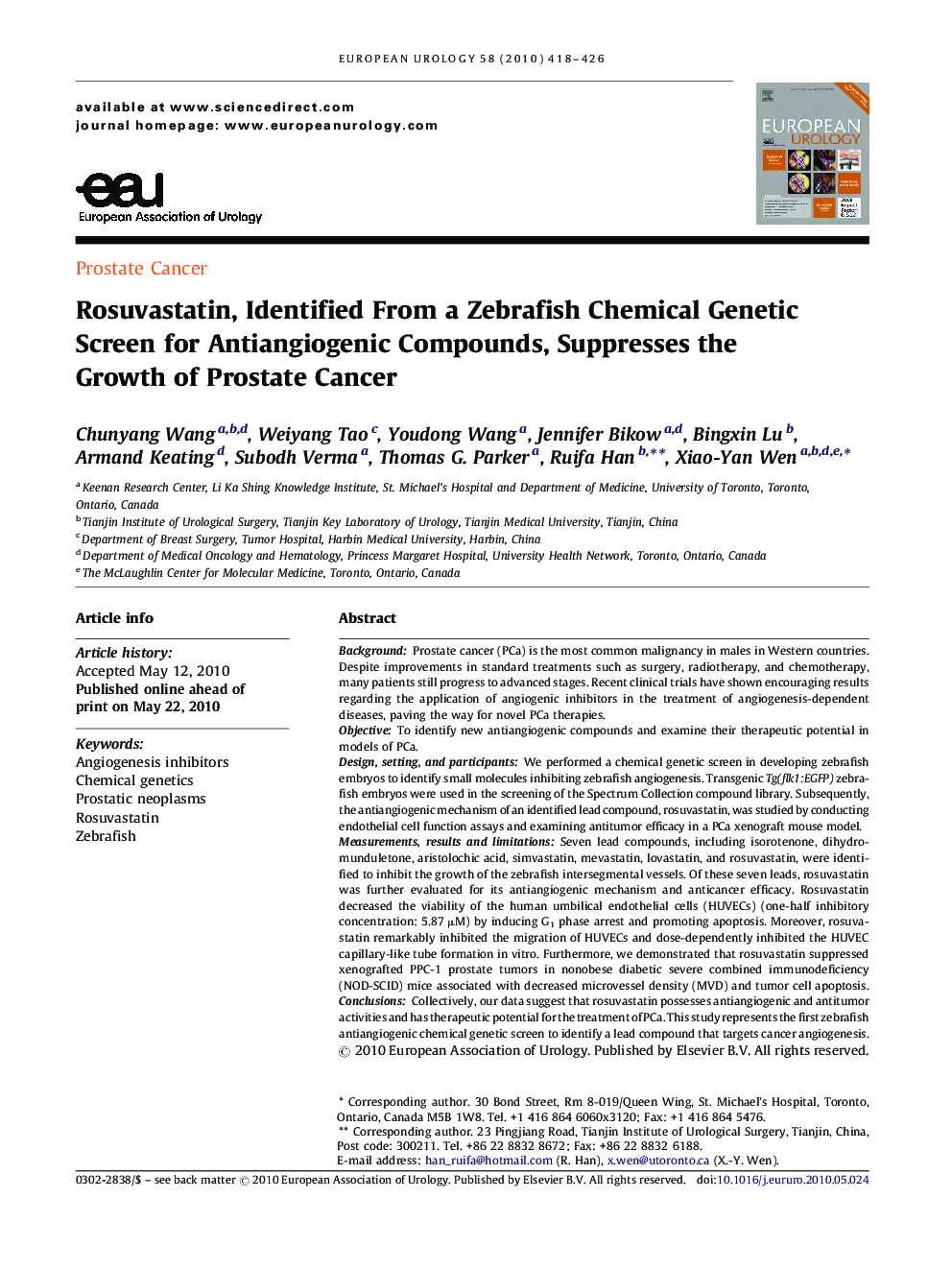| کد مقاله | کد نشریه | سال انتشار | مقاله انگلیسی | نسخه تمام متن |
|---|---|---|---|---|
| 3924854 | 1253117 | 2010 | 9 صفحه PDF | دانلود رایگان |

BackgroundProstate cancer (PCa) is the most common malignancy in males in Western countries. Despite improvements in standard treatments such as surgery, radiotherapy, and chemotherapy, many patients still progress to advanced stages. Recent clinical trials have shown encouraging results regarding the application of angiogenic inhibitors in the treatment of angiogenesis-dependent diseases, paving the way for novel PCa therapies.ObjectiveTo identify new antiangiogenic compounds and examine their therapeutic potential in models of PCa.Design, setting, and participantsWe performed a chemical genetic screen in developing zebrafish embryos to identify small molecules inhibiting zebrafish angiogenesis. Transgenic Tg(flk1:EGFP) zebrafish embryos were used in the screening of the Spectrum Collection compound library. Subsequently, the antiangiogenic mechanism of an identified lead compound, rosuvastatin, was studied by conducting endothelial cell function assays and examining antitumor efficacy in a PCa xenograft mouse model.Measurements, results and limitationsSeven lead compounds, including isorotenone, dihydromunduletone, aristolochic acid, simvastatin, mevastatin, lovastatin, and rosuvastatin, were identified to inhibit the growth of the zebrafish intersegmental vessels. Of these seven leads, rosuvastatin was further evaluated for its antiangiogenic mechanism and anticancer efficacy. Rosuvastatin decreased the viability of the human umbilical endothelial cells (HUVECs) (one-half inhibitory concentration: 5.87 μM) by inducing G1 phase arrest and promoting apoptosis. Moreover, rosuvastatin remarkably inhibited the migration of HUVECs and dose-dependently inhibited the HUVEC capillary-like tube formation in vitro. Furthermore, we demonstrated that rosuvastatin suppressed xenografted PPC-1 prostate tumors in nonobese diabetic severe combined immunodeficiency (NOD-SCID) mice associated with decreased microvessel density (MVD) and tumor cell apoptosis.ConclusionsCollectively, our data suggest that rosuvastatin possesses antiangiogenic and antitumor activities and has therapeutic potential for the treatment of PCa. This study represents the first zebrafish antiangiogenic chemical genetic screen to identify a lead compound that targets cancer angiogenesis.
Journal: European Urology - Volume 58, Issue 3, September 2010, Pages 418–426